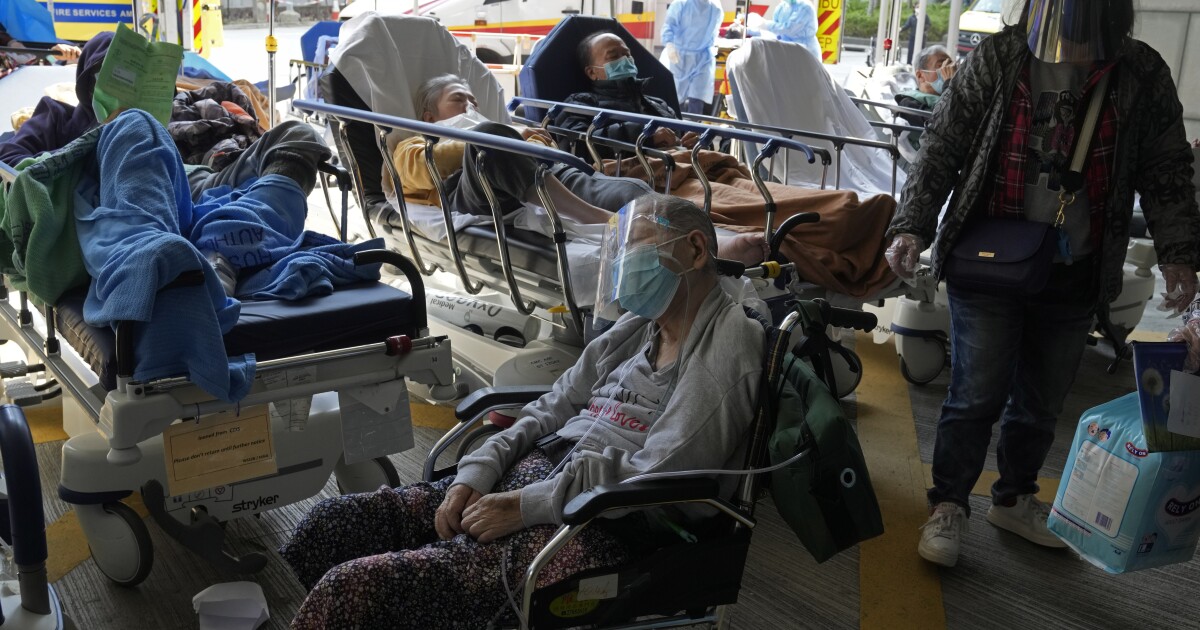For two years, Hong Kong successfully isolated most of its residents from COVID-19, often months without a single case of local spread. But then the omicron variant appeared.
This fast-spreading variant of the coronavirus has bypassed Hong Kong’s defense measures and has spread rapidly across one of the world’s most densely populated places. The situation has overwhelmed hospitals and isolation wards, and has forced the authorities to take other measures to test the 7.4 million inhabitants, and to hastily create six isolation and treatment centers.
The outbreak shows what happens when COVID-19 attacks a population unprotected by immunity from previous infections and highlights the low vaccination rate among elderly citizens, who are the most affected by the new wave.
Only about 30% of Hong Kongers over the age of 80 and about 58% of those between 70 and 79 years of age are fully vaccinated, lagging far behind younger populations.
This comes despite vaccines being widely available in Hong Kong from early 2021.
In the past three days, the city has recorded some 150 deaths, many of them among unvaccinated older people.
Health authorities say vaccine hesitancy among the elderly is an unfortunate side effect of Hong Kong’s success in keeping the virus away from its borders for months.
Many people thought the risk of contracting COVID-19 was practically zero, since there were no cases, and the elderly were led to believe that the risk of getting vaccinated was greater than not getting it, said Karen Grépin, a public health expert. from the University of Hong Kong.
After intense security screening, hundreds of millions of vaccines have been administered worldwide and few serious adverse effects have been detected in the population, but the first reports of secondary reactions caused by the vaccine received in Hong Kong created the false idea that people had to be perfectly healthy to be vaccinated.
Hong Kong’s experience may also serve as a lesson for mainland China and its decision on when to reopen its borders and remove the two- to three-week quarantine requirement for anyone entering the country.
–


